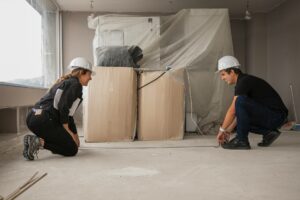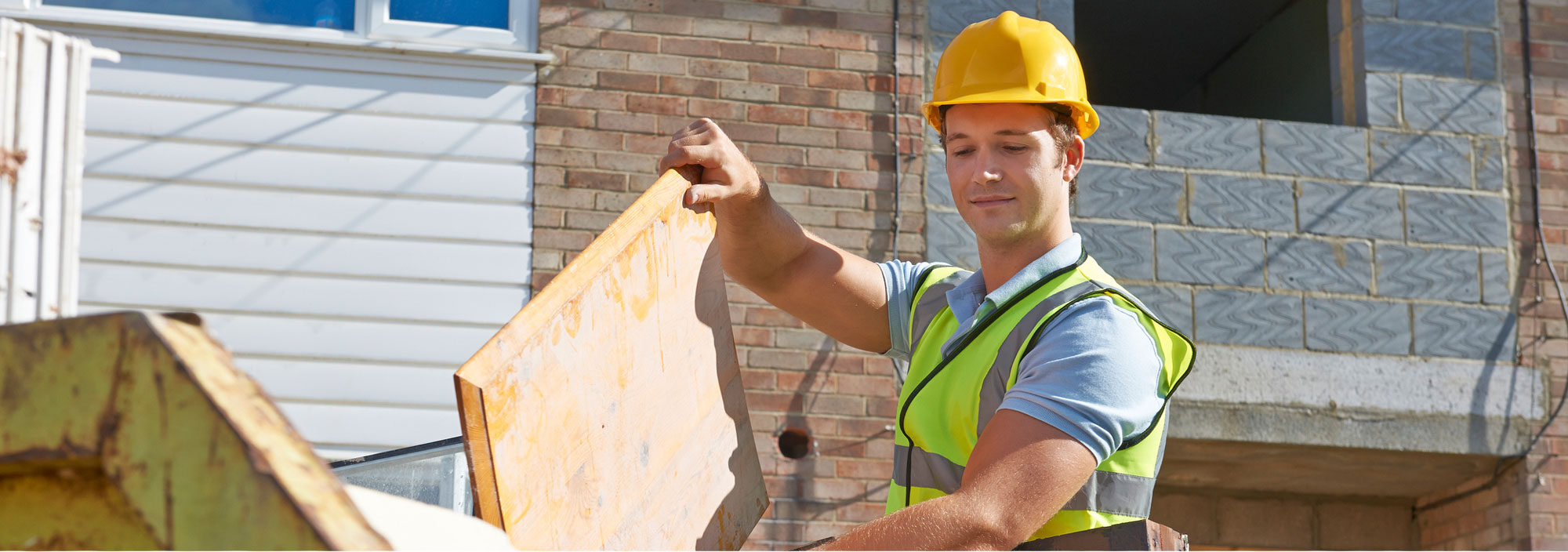Tips for Efficiently Managing Debris Removal After Renovations

After the dust of a renovation settles, there’s often a mountain of debris left behind to tackle. Managing debris effectively not only leaves your space looking its best but also ensures that the waste is disposed of in a responsible manner. Debris from renovations can range from torn-up carpets to chunks of drywall and heaps of packaging materials. Successfully dealing with the aftermath of these materials requires a systematic approach to avoid being overwhelmed by the mess.
A well-organized plan for removing debris can make the process less stressful and more efficient. Without a clear plan, you might find yourself running back and forth, unsure where to start or how to effectively dispose of everything. Streamlining the process of debris removal not only saves time but also helps in maintaining cleanliness and safety in your environment.
Plan Your Debris Removal Early
Creating a plan for debris removal before renovations even begin offers significant advantages. By incorporating this stage into the broader renovation plan, you can anticipate challenges and prevent them from becoming headaches later on. Early preparation allows you to deal with potential obstacles, like tight spaces for large bins or figuring out where accumulations will occur.
Here’s how you can get started:
– Assess the Types of Debris: Determine what types of materials will need disposal. Are you dealing with large items like cabinets, or smaller waste such as tiles? Knowing this in advance will help you make informed decisions.
– Estimate the Volume: Try to gauge the quantity of debris. This helps in choosing the right size for containers and scheduling appropriate disposal services. To visualize, imagine filling your living room with this debris—this method can give you a clearer picture.
– Coordinate Timelines: Ensure that your debris removal schedule aligns with your renovation timeline. You don’t want to start removal too early, leaving room for more mess, or too late, causing clutter.
By tackling these steps in advance, you can streamline the whole process, leading to a less stressful renovation with minimal interruption to your everyday life. With a little forethought, your renovation can remain focused on the exciting transformation of your space, rather than being derailed by logistical nightmares.
Choosing the Right Container
Selecting the perfect container is a critical step when dealing with renovation debris. The right choice ensures you can efficiently store and dispose of all the waste generated. Containers come in various sizes and types, designed to fit everything from small projects to major overhauls.
When deciding on a container, first consider the scale of your renovation. A small kitchen redo might need just a small bin, whereas a full home makeover could require multiple large ones. Here’s a quick guide to help you decide:
– Mini Bins (up to 4 cubic yards): Ideal for compact projects like a bathroom revamp. They can handle limited amounts of tiles, drywall, and small fixtures.
– Medium Bins (approximately 10 cubic yards): Perfect for medium-sized renovations such as a kitchen or a garage makeover.
– Large Bins (20 cubic yards and above): These are necessary for extensive home renovations or significant construction projects, where you face a deluge of debris.
Opting for professional bin rental services brings peace of mind, assuring proper handling and disposal of your renovation waste. Professionals often provide guidance on the most suitable size for your needs and schedule timely pickups, saving you from the worry of overflowing piles.
Sorting and Separating Debris
Properly sorting debris can make a significant difference in managing renovation waste. It not only simplifies disposal but also aids in recycling efforts. By organizing debris into categories, you ensure that materials like metals and plastics are either recycled or disposed of in an eco-friendly manner.
Consider setting up designated zones for different debris types at your site:
1. Recyclables: Collect materials like metals, plastics, and glass in one spot to make recycling easier.
2. Reusables: Some items like timber or fixtures can find new life in other projects or through donations.
3. Waste: Non-recyclable waste should have its own place to avoid contamination with recyclables.
Sorting debris is beneficial for the environment, reducing the amount of waste heading to landfills. It contributes to a cleaner renovation site and aligns with green living practices.
Scheduling Regular Pickups
Ensuring regular debris pickups during your renovation means keeping the site clean and free from clutter. It avoids the chaos that comes with last-minute disposal attempts, which can disrupt your schedule and increase frustration.
When you work with a debris removal service, you get the added advantage of flexible scheduling. You can align pickups with key project phases, making sure debris is cleared as new construction moves forward. Consistently cleared sites not only enhance safety but also maintain a positive working environment for everyone involved.
To manage your renovation seamlessly, create a pickup schedule that complements your renovation timeline. Avoid letting debris pile up, which can quickly turn your project into a logistical headache.
Finish Your Project Cleanly
Now that we’ve walked through the steps of managing debris efficiently, it’s clear that a well-thought-out strategy is key to success. By planning your debris removal early, choosing the right containers, and sorting debris responsibly, you set your renovation up for a smooth journey. Regular pickups keep your site clean and productive, rounding out your project on a strong note.
As you look to future projects, keep these practices in mind. They’re not just helpful for today but will serve you well in any renovation task ahead. Consider these strategies as the foundation of a clean, organized renovation process that respects both your space and the environment.
Simplify your renovation project by ensuring efficient and reliable debris removal with Dr. Waste in Kingston. Our professional services will keep your renovation site clean and manageable, helping you stay organized and focused on what matters most—transforming your space. Take advantage of our expertise to enjoy a clutter-free, stress-free renovation experience. Contact us today to learn how we can assist in keeping your project on track and your site pristine.

